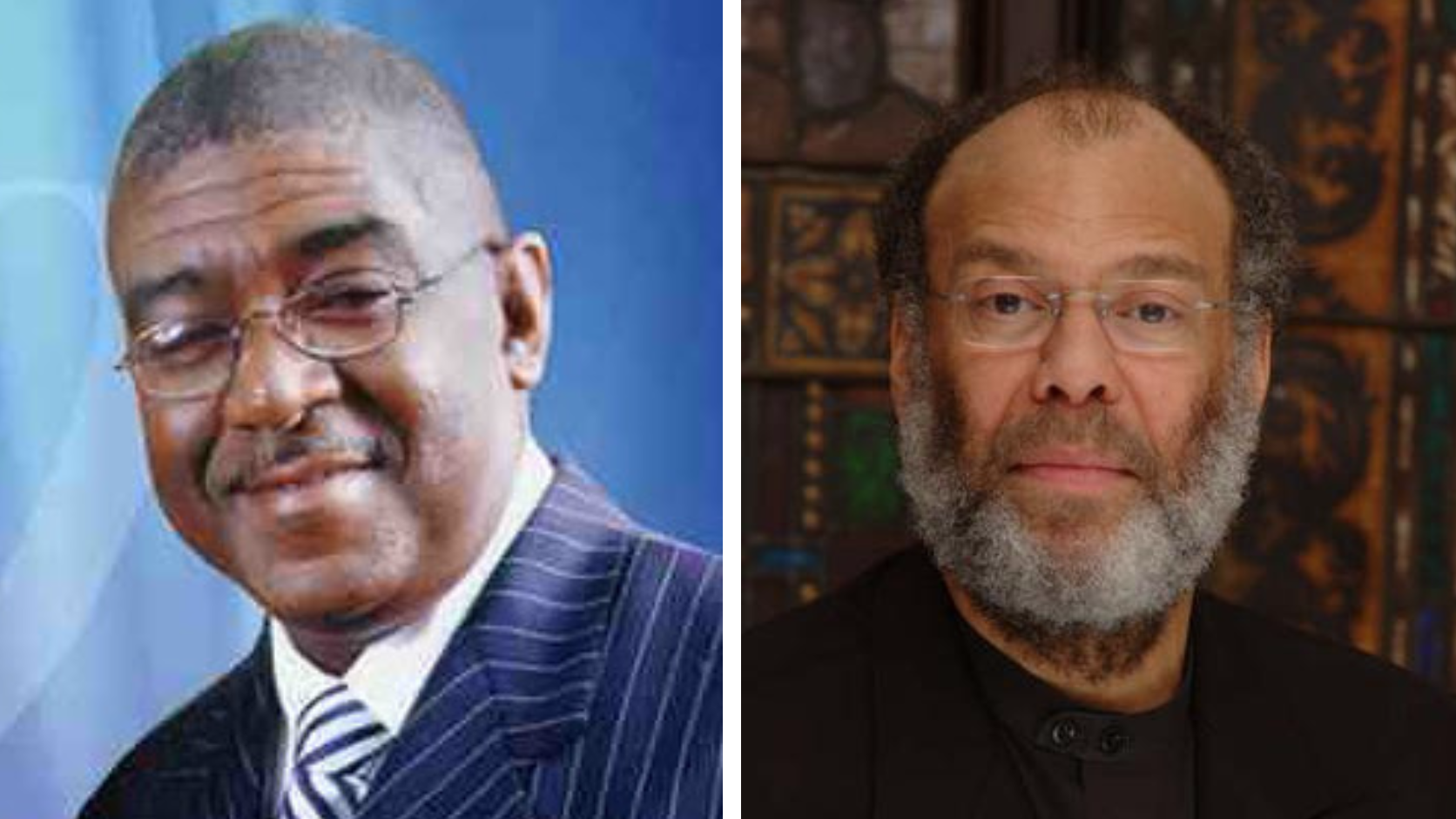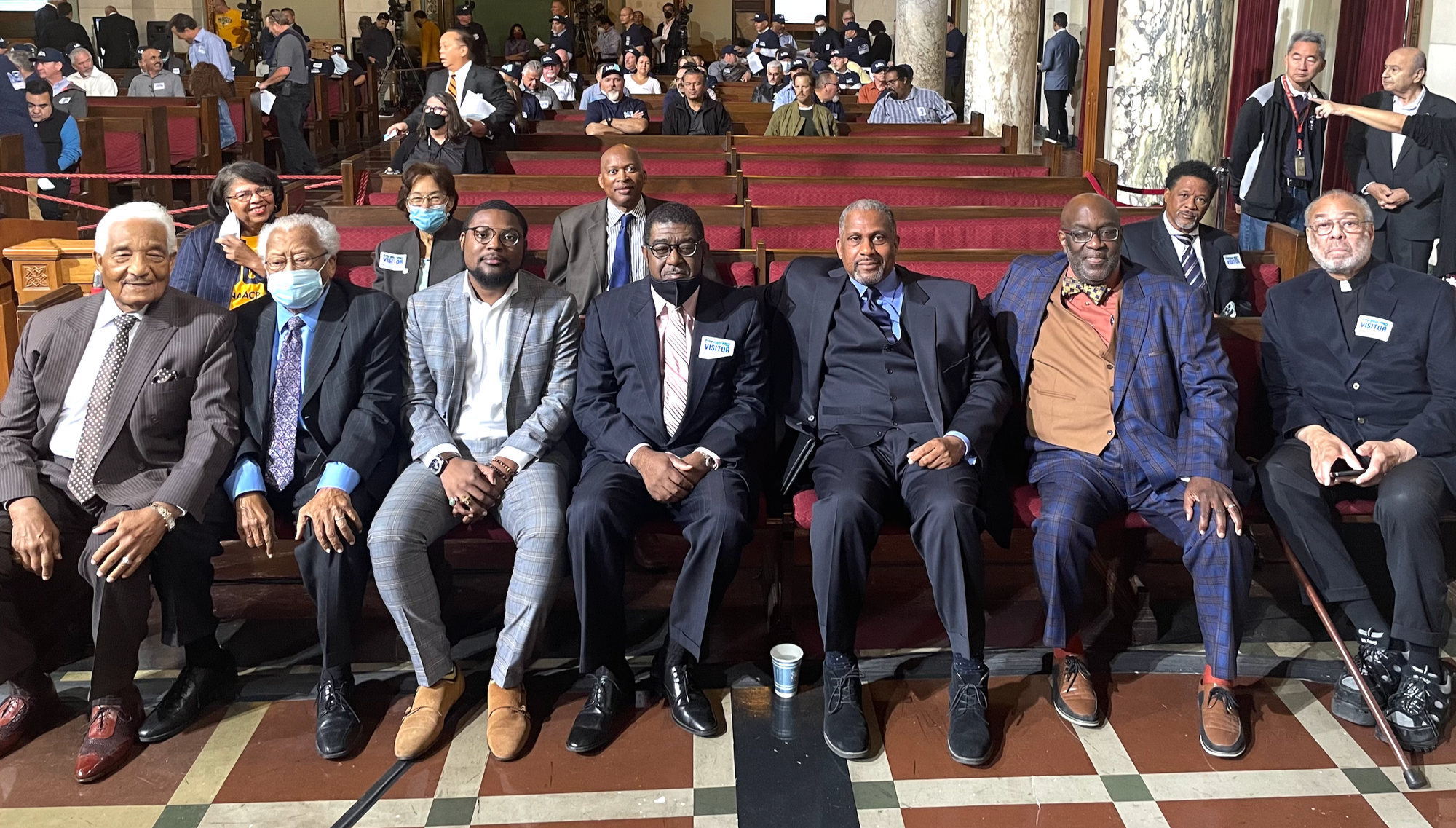USA v MRT: We Are Watching Closely and Prayerfully

By Norman S. Johnson and William S. Epps
We are very pleased that the unjust conviction and sentence of Dr. Mark Ridley-Thomas (MRT) in the case of USA v. MRT is attracting national attention.
The United States Attorney’s Office’s (USAO) novel and unique interpretation of “honest services fraud” statutes and their unprecedented definition of “bribery” is sounding alarm bells from houses of worship to court houses to the halls of the Legislature. The case has far-reaching implications for representative government at a time when fundamental democratic values are being challenged by overzealous prosecutors abusing the very “criminal justice system” that is suppose to dispense due process under the law.
This case is no longer limited to the conviction of Dr. Ridley-Thomas. It exposes the power of the Federal government to secure unjust convictions and sentences. The historic inequities of the criminal justice system that place African Americans and other vulnerable populations at significant disadvantage are already well known. What makes this case different is MRT’s willingness and ability—with God’s help and strength—to contest the awesome power of the Federal Department of Justice.

Much like a good sermon, we wish to make three points here.
First, Dr. Mark Ridley-Thomas is free on bail pending appeal because 1. He is not a flight risk; 2. He is not a threat the public safety; and 3. His appellate arguments are very meritorious. Additionally, MRT is not in prison by virtue of the strong, top quality appellate team he has been able to assemble coupled with the sustained support his servant leadership for four decades has garnered.
MRT’s verdict followed a unique prosecution that relied on a novel and unprecedented application of federal statutes. The case should never have been pursued. His appeal is ripe for success. In contrast to far too many defendants similarly situated, MRT was able to successfully win acquittal on most of the charges, resist the pressure to concede guilt, pursue his appeal based on the talent and competence of his trial and appellate teams, retain broad public support and secure the financial resources required to sustain the effort.
Second, by pursuing his appeal, USA v. MRT exposes abuse of prosecutorial discretion, the disturbing existence of implicit racial bias in criminal investigations, and the tactics used to obtain plea deals from defendants threatened by longer sentences.
We believe, if necessary, USA v. MRT has the potential to go all the way to the United States Supreme Court. The failure of Federal prosecutors to win convictions on 12 of 19 charges illustrate the weakness of the case. Stripped of these convictions, the same jury found Dr. Ridley-Thomas guilty of compelling a USC Dean to bribe him with his own money in exchange for his vote on a non-controversial, unanimously passed contract extension. In other words, MRT was convicted of bribing himself. How nonsensical is that?
The trial record reveals how prosecutors undermined MRT’s constitutional right to a trial by one’s peers. They used their peremptory challenges to remove the only Black female jurors from the jury pool. At sentencing, they disregarded the acquitted conduct. In their sentencing recommendation, they attacked his right to appeal by accusing him of leaning into a narrative of victimhood by failing to express remorse for convictions he publicly said he was seeking to overturn. The appeal and friend of the court briefs tell a much different story.
Third, MRT’s appeal potentially has far reaching implications for prosecutorial power, jury selection, representative democracy.
The Appellant’s Opening Brief and three friends of the court briefs constitute a compelling counter narrative to the prosecution’s story about power and privilege. Each friend of the court brief in its own way amplifies the arguments made in the merits appeal concerning everything from definitions of bribery, to the ability to receive a fair trial based on juror exclusion. They support the appeal’s contention that MRT’s conviction was based on a novel misapplication of the law linked to either a fatally flawed, overly expansive, and dangerous legal theory or, even worse, errors made by the trial court that effectively denied him a fair trial. They reveal a much different picture about the use of power and privilege – one that is unfavorable to prosecutors in the USAO.
The issues raised in this case are extremely significant and merit comprehensive understanding by those who care about truth, justice, and governmental accountability. Toward that end we must watch, fight and pray.
Editor's Note: Pastors Johnson and Epps are co-conveners of South LA Clergy for Public Accountability—a coalition of religious leaders representing over 50,000 church members.

